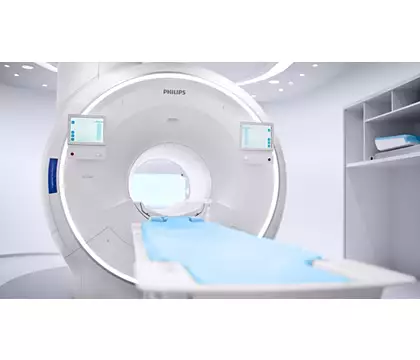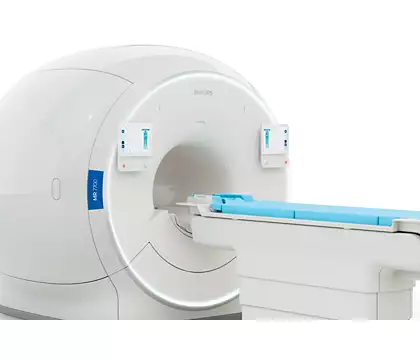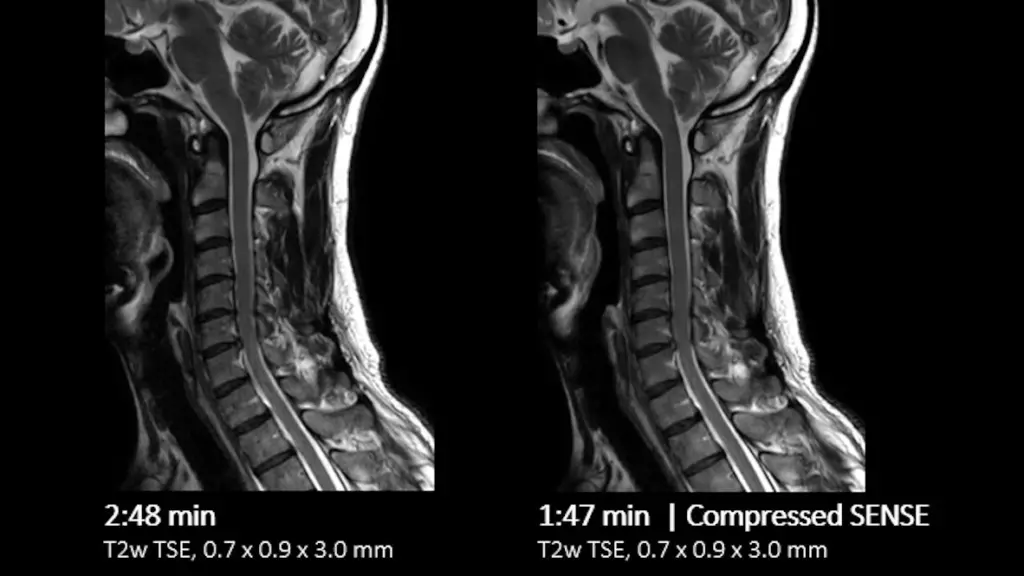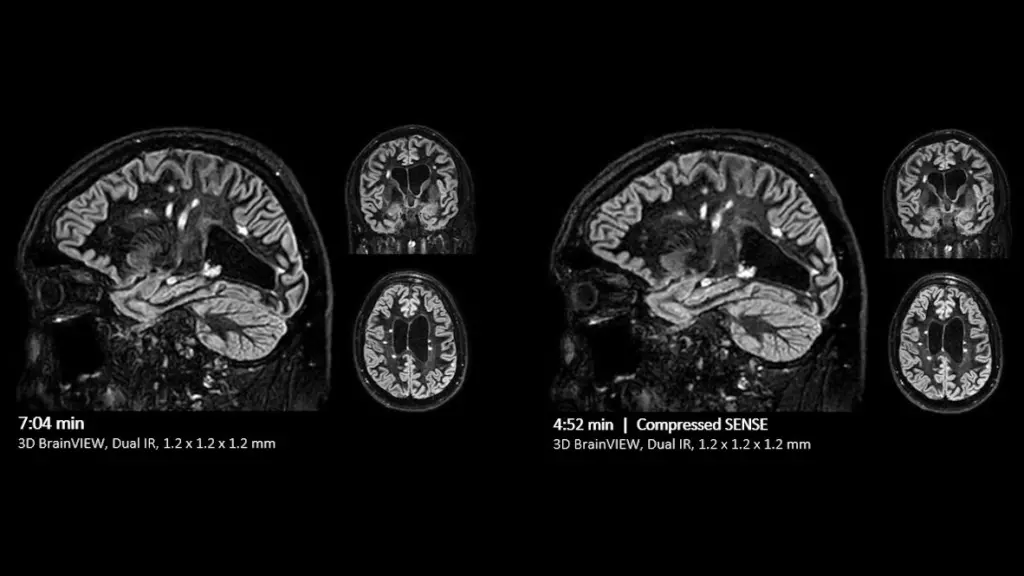The MR 7700 MRI system provides high accuracy, power, and resilience to support reliable diagnostics for every patient. It is the preferred system for the highest quality diffusion imaging and advanced neurosciences.
The compatibility of diffusion TSE with Philips’ robust MultiVane XD application for motion-free imaging contributes to robust motion artifact suppression, thus improving diffusion image quality. Scan time can be reduced by up to 15%, using the same spatial resolution, due to the shorter repetition times (TR) provided by the MR 7700’s high power.
To prevent image blurring, distortion, or ghosting, the MR 7700 is designed and built to provide precise gradient waveforms across the full performance range of the gradient system. This high accuracy is made possible by an unmatched gradient fidelity of at least 99.97% for t > 0.5ms. This exceptional gradient linearity minimizes distortion, even in large fields of view (FOV), and supports visibility of small lesions, especially at the FOV edges. This is particularly beneficial for applications such as whole-body diffusion.
The MRI system’s ability to illuminate both neuroanatomy and neurofunction has led to its use in numerous neuroscience studies. Offering a new level of power, based on a 2.4 MW amplifier, the MR 7700 allows high gradient amplitudes of 65 mT/m and rise rates of 220 T/m/s simultaneously on each Cartesian axis. This meets the needs of the most demanding imaging sequences by providing continuous maximum performance to support the search for new clinical pathways and providing a key advantage for neuro-researchers — exceptional image quality and speed for diffusion imaging and fMRI.
Since neuroscience sequences typically require high gradient amplitudes and short TRs, these sequences particularly benefit from the MR 7700’s exceptional resilience. With the MR 7700, you can perform up to 20% more fMRI sequences, with the same spatial resolution, due to shorter TRs. High-performance gradients, combined with MultiBand SENSE acceleration techniques, allow you to acquire up to 50% more DTI directions in the same scan time.
Innovative Imaging and Workflow Solutions
The MR 7700’s gradient and radiofrequency design, combined with a host of unique features such as 3D APT (Amide Proton Transfer), blood oxygenation imaging, and susceptibility-weighted imaging (SWIp), helps you achieve new levels of precision in both anatomical and functional clinical imaging. With innovations across all fronts, the system supports confident decision-making and enhances diagnostic imaging, even for the most complex cases. It allows you to meet existing, new, and future clinical demands while addressing the growing patient volume experienced by many radiology departments.
Seamless Multi-Nuclei Integration
Multi-nuclei imaging and spectroscopy (MN) is a key area of cutting-edge clinical research. However, it typically involves different software versions, complicated user interfaces, and dedicated coils, with scan times that are often quite long, disrupting daily imaging workflows. To advance clinical prospects in this promising field, Philips has made multi-nuclei imaging and spectroscopy a part of your daily clinical workflow. Designed for immediate implementation, our Multi-Nuclei solution provides the confidence to explore new imaging pathways and the speed to integrate multi-nuclei studies into your daily workflow.
Adding multi-nuclei capabilities to the MR 7700 opens a research window to other nuclei in the search for metabolic and functional information. It allows you to perform clinical imaging, spectroscopy, and research studies for six different nuclei (1H, 31P, 13C, 23Na, 19F*, and 129Xe*).















